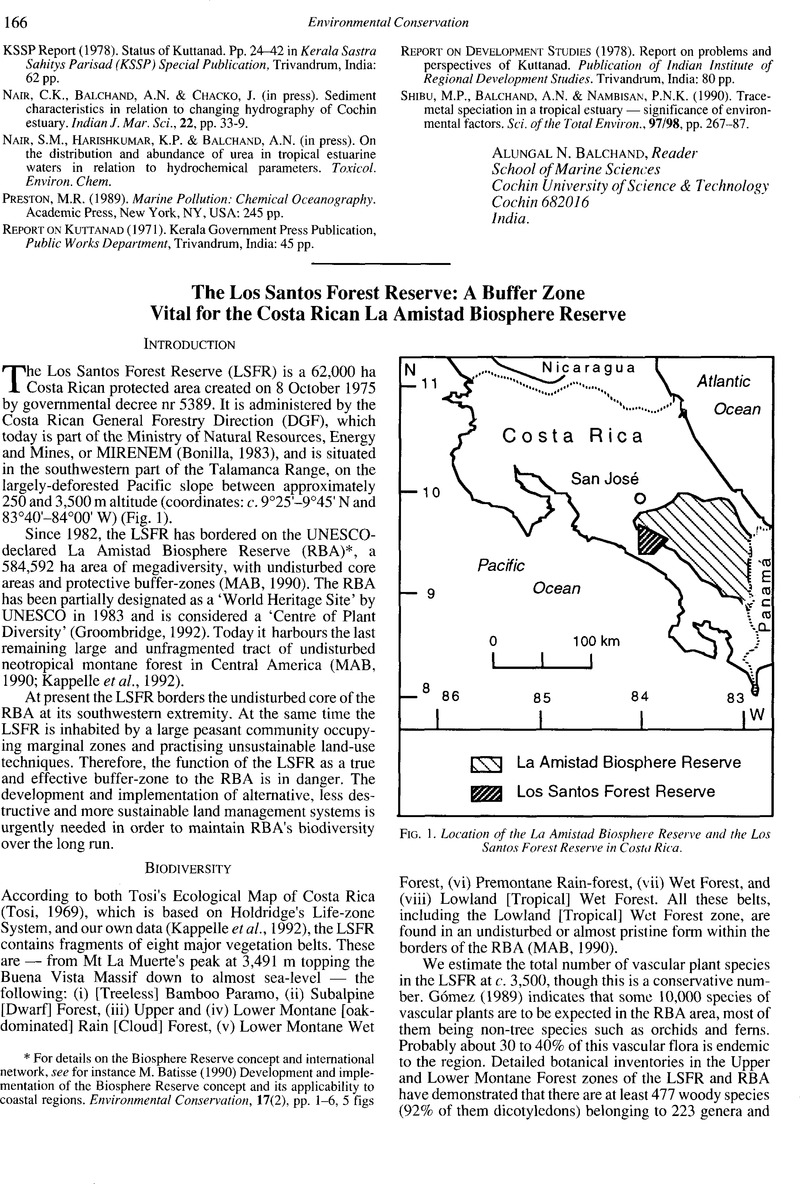Crossref Citations
This article has been cited by the following publications. This list is generated based on data provided by Crossref.
Kappelle, Maarten
Geuze, Thorwald
Leal, Miguel E.
and
Cleef, Antoine M.
1996.
Successional age and forest structure in a Costa Rican upper montaneQuercusforest.
Journal of Tropical Ecology,
Vol. 12,
Issue. 5,
p.
681.
Oosterhoorn, M
and
Kappelle, M
2000.
Vegetation structure and composition along an interior-edge-exterior gradient in a Costa Rican montane cloud forest.
Forest Ecology and Management,
Vol. 126,
Issue. 3,
p.
291.
Kappelle, Maarten
Avertin, Guillaume
Juárez, Marta E.
and
Zamora, Nelson
2000.
Useful Plants Within a Campesino Community in a Costa Rican Montane Cloud Forest.
Mountain Research and Development,
Vol. 20,
Issue. 2,
p.
162.
Kappelle, Maarten
Van Omme, Liz
and
Juárez, Marta E.
2000.
Lista de la flora vascular de la cuenca superior del Río Savegre, San Gerardo de Dota, Costa Rica.
Acta Botanica Mexicana,
p.
1.
Gorman, George C.
2003.
Biodiversity Conservation in the La Amistad Biosphere Reserve.
Journal of Sustainable Forestry,
Vol. 16,
Issue. 1-2,
p.
121.
Kappelle, M.
and
Juárez, M. E.
2006.
Ecology and Conservation of Neotropical Montane Oak Forests.
Vol. 185,
Issue. ,
p.
393.
García-Rojas, M.
2006.
Ecology and Conservation of Neotropical Montane Oak Forests.
Vol. 185,
Issue. ,
p.
325.
Kappelle, M.
2006.
Ecology and Conservation of Neotropical Montane Oak Forests.
Vol. 185,
Issue. ,
p.
223.
Gomes, Laurens G.L.
Oostra, Vicencio
Nijman, Vincent
Cleef, Antoine M.
and
Kappelle, Maarten
2008.
Tolerance of frugivorous birds to habitat disturbance in a tropical cloud forest.
Biological Conservation,
Vol. 141,
Issue. 3,
p.
860.
Bray, David Barton
2009.
Reforesting Landscapes.
Vol. 10,
Issue. ,
p.
85.
Hölscher, D.
Köhler, L.
Kappelle, M.
and
Leuschner, Ch.
2011.
Tropical Montane Cloud Forests.
p.
610.



